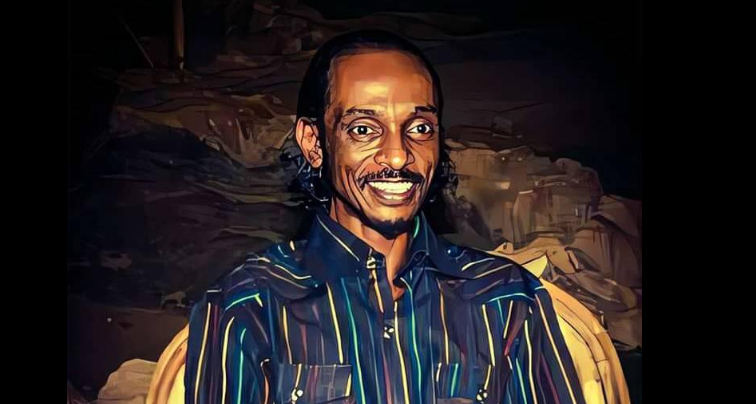
War in Khartoum Keeps Al-Hawata Away from Mourning Mahmoud Abdul Aziz
Al-Zain Osman
Today, Mohammed Babiker, the Secretary-General of the Satellite Lovers Group, a group that includes several fans of the late Sudanese artist Mahmoud Abdul Aziz, will not go to Khartoum Stadium as usual for the annual memorial of the late artist on January 17, 2013. The "Al-Hawata," the term used to identify the admirers of the late artist Mahmoud Abdul Aziz, used to gather at the stadium to hold the yearly memorial event. Like many others, Babiker has been driven by the ongoing war in Khartoum to states outside Sudan.
For ten consecutive years, Al-Hawata has been keen on organizing the annual memorial, but the celebration was absent once in 2019. At that time, the admirers decided to commemorate him in the streets through a procession they called the "Al-Hawata Procession" to overthrow the regime of President Omar al-Bashir, who they believed treated Mahmoud harshly, with oppression, torture, and imprisonment during the December youth revolution. Last year, Al-Hawata decided to organize Mahmoud Abdul Azizs memorial festival with the accompaniment of his musical band, which played the late artists songs, echoing the chants of the thousands present in a choral scene, where they sang their slogan, "The whale never dies."
The presence of artist Mahmoud Abdul Aziz, born in October 1967, who started singing in 1987 and has more than 125 original songs, in addition to well-known cover songs, was not limited. Mahmouds career witnessed the release of 29 albums in the nineties and the early 2000s. The artist secured his place in public cafes, restaurants, and public transport, becoming a voice representing the Sudanese street in various cities, making him dominate the Sudanese music scene during that period. This was aided by the youth who considered his rebellion against the prevailing norms as an expression of their resistance, appreciating his high vocal capabilities and great popularity.
The Sudanese thinker and writer Haydar Ibrahim stated that Mahmoud was the voice of opposition during the Salvation regime, referring to the era of the Muslim Brotherhoods rule. He was also the voice of life during the war. At a time when the authorities failed to recruit the youth for their wars in the South, Mahmoud was able to bring them together in his concerts; they followed him from one place to another.
Earlier, the ruling authorities imposed on artist Mahmoud Abdul Aziz to include in one of his albums the song "Al-Nar Walaat" (The Fire Ignited) in line with the call for jihad that the country witnessed at that time. The irony was that Mahmoud, at that time, sang the song "Al-Haneen Al-Bay Lahe Ma Qaddaro Al-Umr Min Wain Yishtaro?" (Why didnt they value life? Where did they buy it from?)
In its tenth month, the April Sudanese war will deprive Al-Hawata of Mahmouds memorial at Khartoum Stadium, which used to be vibrant in the past years. Like other areas, Al-Hawata has been affected by the ongoing war. The road to it, like the bridges in the Sudanese capital, is closed. The youth of Al-Hawata are scattered in displacement cities and camps, with no place to hang posters for the concert.
January 17 marks the Sudanese greatest mourning event on such a day. Eleven years ago, Khartoum witnessed its longest funeral march as it bid farewell to "Al-Wad Al-Shaft" Mahmoud among its people. Khartoum drowned in tears; neighborhoods mourned, echoing the chants of "No Sudan after Al-Jan" (no Sudan after Al-Wad). Everyone followed the coffin carried from Amman, Jordan, at a time when Khartoums streets were not confined by the grief and tears of its residents, and the fires of wars had not yet burned the homes of the people.
On January 17, the peak of Sudanese sorrow, grief will be associated with a straw. It was nothing but the shoulder of his friend walking with him towards Khartoum Stadium to mourn their beloved, chanting year after year. This year, the youth of Satellite Lovers Group will be absent, but Mahmoud remains in their hearts. Due to the war, it prevented the people of Khartoum from mourning their dead loved ones. Whats worse is the feeling of helplessness.
This year, Al-Hawata will not be able to stand by the grave of their beloved in Helta Hamad because the place is occupied by the war movement. Moreover, the old Heliopolis of Mahmoud does not resemble the Heliopolis of the past, where playing with the lives of Sudanese was a common occurrence. They wont be able to pour water on his grave. However, from his place, he will do what he used to do. He will be the voice of life in a time of death, calling for an end to the war. In his own way, he will pose his question to the warring parties, "Al-Haneen Al-Bay Lahe Ma Qaddaro Lahe Ma Qaddaro Al-Umr Min Wain Yishtaro?" (Why didnt they value life? Where did they buy it from?)
This year, the blood donation campaign organized by the "Mahmoud in the Heart" group on the anniversary of Mahmoud Abdul Azizs departure will also be absent. It will be absent because Khartoum no longer has a blood bank with its bleeding blood. The tanks of death have swept through the Stak factory, where the central blood bank was located. There will be no open day for blood donation as there are no volunteers in the city that the war has emptied of life—a void similar to the void of Khartoum Stadium on the day of Al-Hawatas mourning, which was unexpected.

